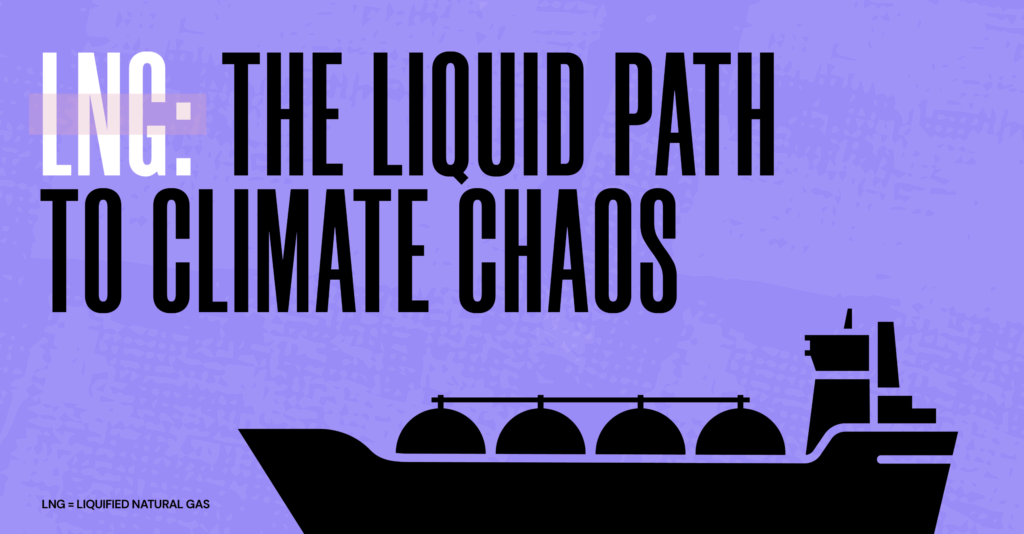LNG: The Liquid Path to Climate Chaos
10 reasons why liquified fossil gas is the wrong choice for Europe
“Liquefied Natural Gas” (LNG) has been thrown into the spotlight. The cost of fossil gas has been rising since 2021 and the horrific invasion of Ukraine by Russian troops has forced governments to grapple with how to end Europe’s fossil fuel dependency on Russia. Together with the need to get off fossil fuels as soon as possible in order to mitigate the impacts of climate change and keep global warming to below 1,5 degrees, these realities have created a buzz around LNG. But what is LNG and why does it matter? This briefing looks to raise the alarm bell around the roll out of LNG across Europe as an attempt to tackle energy security concerns. It will put forward ten key arguments that showcase the host of problems LNG brings.
The briefing has is also available in Croatian, Polish, Spanish and Galician, German, French and Greek
But first, an explanation of what LNG actually is.
LNG simply refers to fossil gas which is transported not through pipelines in a gaseous form, but which is chilled to minus 162°C in order to be liquefied and transported large distances by ships.
This means that when we talk about LNG in Europe, we are talking about gas that is extracted, converted into liquid form, shipped across an ocean, converted back into gaseous form, then pumped through the European gas grid to eventually heat and cool homes, and power industry activities.
These LNG imports made up 20.5% of Europe’s fossil gas consumption in 20211 and with pressure to end imports of Russian gas, governments are looking to LNG from non-Russian sources to meet demand.
Moves to get off Russian gas are necessary and urgent to help end the war in Ukraine by reducing the income Putin has for his war machine. Yet, we must also be cautious of letting short-term energy supply concerns lock Europe into long-term costly deals that trap consumers into more dirty fossil fuel infrastructure and energy dependencies in the future.
Long-term fossil gas use is incompatible with a safe climate and this needs to be the turning point when Europe moves away from fossil fuels once and for all.
This briefing provides counterarguments to the overinflated role that LNG is being positioned to have in Europe’s energy future, and shows instead that this is a dangerous distraction from the just energy transition to renewables that is so desperately needed.



